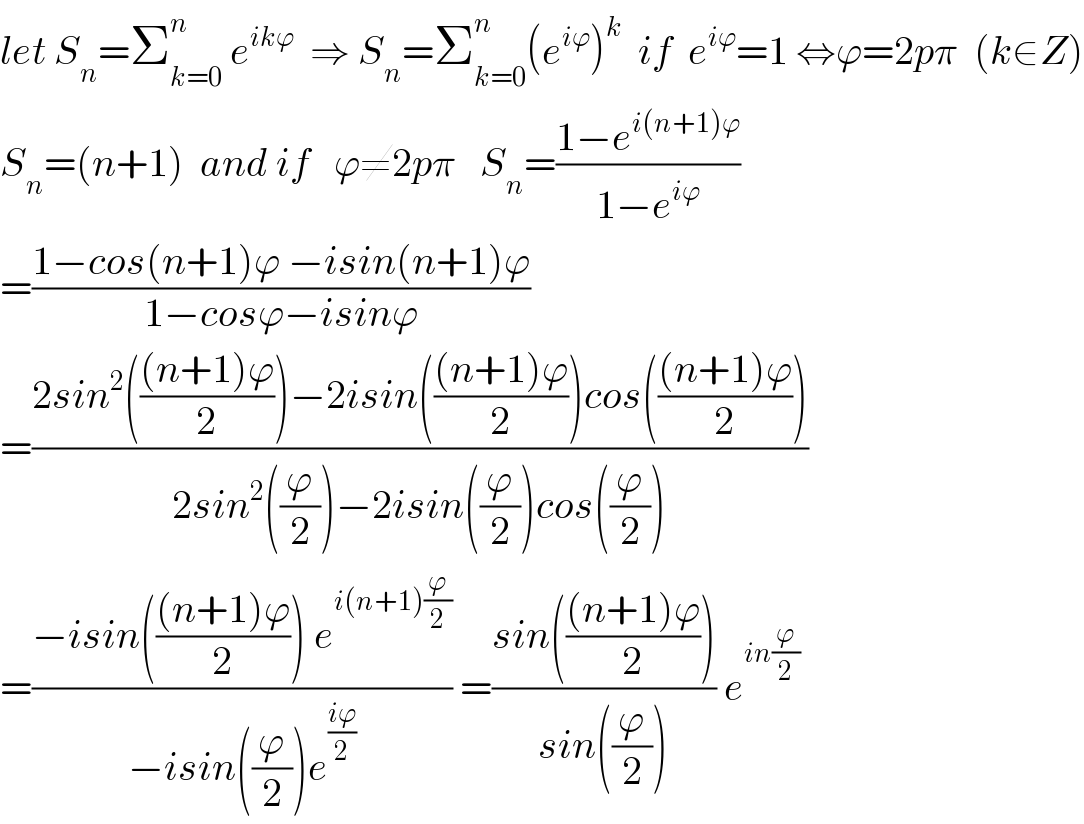
Question and Answers Forum
Previous in Permutation and Combination Next in Permutation and Combination
Question Number 75122 by chess1 last updated on 07/Dec/19

Commented by JDamian last updated on 07/Dec/19

Commented by mathmax by abdo last updated on 07/Dec/19

Commented by chess1 last updated on 07/Dec/19

Commented by mathmax by abdo last updated on 07/Dec/19

